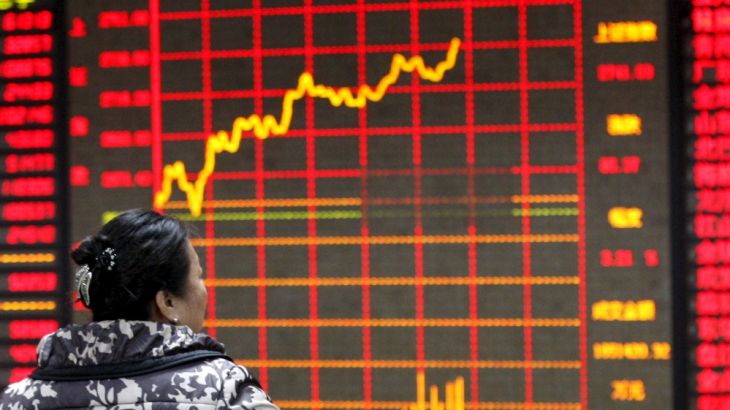
Will China’s five-year plan reinvigorate its economy?
We explore China’s ambitious 2016-2020 economic and social plan and ask if it will help reverse the country’s fortunes.
China’s ruling Communist Party has unveiled an incredibly ambitious plan that it says will serve as a blueprint for the country’s economic and social development for the next five years.
Premier Li Keqiang set targets for economic growth at above 6.5 percent between 2016 and 2020, even though the country faces sluggish demand at home and abroad, industrial overcapacity, and faltering investment.
Keep reading
list of 4 itemsParallel economy: How Russia is defying the West’s boycott
US House approves aid package worth billions for Ukraine, Israel
Ecuador weighs security, international arbitration in latest referendum
Seeking to reassure jittery global markets about the health of the world’s second-largest economy, Li pledged greater reform, saying he would reduce the government’s role in business and make the financial system more market-oriented.
The premier also said that China would create 10 million new jobs and vowed that there would be no mass layoffs.
But as China tries to shift from an export-led economy into a domestic one, can it balance deep structural reforms and weakening global trade?
Dan Luo, an assistant professor of Economics at Nottingham University, joins Counting the Cost to discuss China’s latest growth targets and whether the plan is realistic.
How green energy could save the world trillions
According to new research by the International Renewable Energy Agency, doubling the share of renewables in the world’s energy by 2030 could save the world economy up to $4.2tn a year.
The latest findings say doubling our reliance on renewables such as solar and wind to 36 percent by the year 2030 was “not only feasible” but “cheaper” than continuing on our existing path.
Rajit Nanda, the chief investment officer of ACWA Power, joins the programme to discuss how a green energy project will help countries such as South Africa.
Paraguay FM: ‘Economically we are doing well’
Paraguay’s foreign minister has told Al Jazeera that his country’s economy will grow by 3.1 percent this year, despite the far-reaching slowdown of the global economy.
Eladio Loizaga told Al Jazeera that despite being landlocked and hugely dependent on neighbouring export markets such as Brazil, Argentina and Bolivia, Paraguay would continue to see its economy grow and would continue to invest in its infrastructure.
Loizaga also discussed his country’s position – economically and socially – in the grand scheme of Latin America.